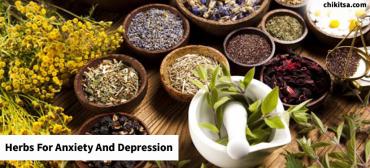Nutrition Facts and Health Benefits of Rosemary

Rosmarinus Officinalis belonging to the family Lamiaceae, well known by the name “Rosemaryâ€, is awarded as the herb of the year in 2001 by International Herb Association. It is a sacred, woody, herbaceous perennial plant filled with fragrance in its flowers and consist of needle shaped leaves. The History says that Virgin Marry rested near a rosemary bush and spread her blue cloak over theshrub, thus surprisingly the white flowers change its colour to blue, from that day onwards it is “Rose of Maryâ€. By virtue of its high resin, tannic acid, volatile oils and flavonoids contents, Rosemary is reported to have a wide array of pharmacological potentials.
Health Benefits of Rosemary
- people have been using rosemary as a main ingredient for culinary purpose.
- It is a rich source of phytochemicals. As we know that the phytochemicals generally contributes to making a plant filled with pharmacological activities or benefits.
- Various reports have unravelled the ability of this plant as a powerful antioxidant, antimicrobial, antiviral, anti-inflammatory, antifungal and anti-carcinogenic agent.
- Several diseases related to central nervous, cardiovascular, urinary, reproductive and respiratory system has been cured by this plant.
- It has been used as a carminative, rubefacient, stimulant and also flavouring agent for liniments, hair lotions, inhaler, soaps and cosmetics.
Benefits of Rosemary Tea

Rosemary plant is indigenous to Southern Europe and Asia, but it is also cultivated in India and Mediterranean basin. It is widely used as a spice in cuisines. This evergreen shrub has a pungent aroma making it a perfect flavouring agent. Beneficial effects of rosemary tea are supported by its activity of improving digestion, promote cognitive function and embedded with the antioxidant property. So a sip of tea can protect people from heart disease and deadliest diseases like cancer.
Rosemary Aromatherapy
Rosemary essential oil, with its warm and penetrating aroma, is one of the most stimulating oils used in aromatherapy, where it is blended with different essential oils and applied in combination. Its pleasant smell decrease the level of cortisol, a hormone which is released during stress. A combinatorial treatment with Rosemary and lavender are used for patients suffering from chronic stress. It works well in aromatherapy massage by relieving stiff and tired muscles. Rosemary essential oil has also been widely used in cosmetic preparations, where it act as a strong astringent and toning agent for skin.
Rosemary Essential Oil
To obtain the essential oil of the highest quality, plants should be in bloom and only from the flowering tops extraction is carried out by steam distillation. Morphological appearance indicates that it is colourless to pale yellow with the characteristic flavour and camphoraceous taste. The oil is insoluble in water, however soluble in 10 volume of 80% alcohol. Topical application of rosemary essential oil is able to reduce a headache and widely used in body massage.
Benefits of Rosemary Oil

The bioactive compounds of crude rosemary oil includes camphor(5-31%),1,8-cineol(15-55%)borneol(1.5-5%), camphene(2.5-12.0%), pinene(9-26%), Limonene(1.5-5.0%), verbenone(2.2-11.1%), caryophyllene(1.8-5.1%) and myrcene(0.9-4.5%). Individually, the aforementioned compounds possess significant medicinal properties which are also used in a variety of traditional medicinal systems. Treatment of various ailments like arthritis, gout, muscular pain, neuralgia and wound. Moreover, it potentiates the hair growth and prevents alopecia. So the application of this oil is very beneficial.
Side Effects of Rosemary:

Rosemary is a safe plant when consumed in lower doses. But in higher dose it can lead to side effects:
- Vomiting
- Spasms
- Coma
- Pulmonary edema
Precautions To Be Taken:
The Following Precaution Should be Taken:1. Rosemary essential oil is emmenagogue, so it is strictly avoided during pregnancy.
2. It can be hazardous in the patients suffering from epilepsy and high blood pressure.
3. Drug interaction is seen with drugs such as
- Anticoagulant- warfarin, aspirin, clopidogrel
- Angiotensin converting enzyme inhibitors- Lisinopril captopril
- Diuretics – Furosemide
- Lithium
Conclusion
Rosemary – “Dew of Sea†is enriched with many active principles. More than 20 varieties of Rosemary plant are cultivated in gardens and slopes. The strong invigorating fragrance of Rosemary oil makes it the most popular essential oil to be widely used in aromatherapy. It also possesses multiple medicinal benefits in diseases like cancer, skin diseases, depression, stress, wounds, arthritis, gout, muscular pain, neuralgia. Moreover, enhances the growth of hair and used as a treatment for alopecia. Rosemary tea is used as a healthy tea for people, as it is rich in phytochemicals.










